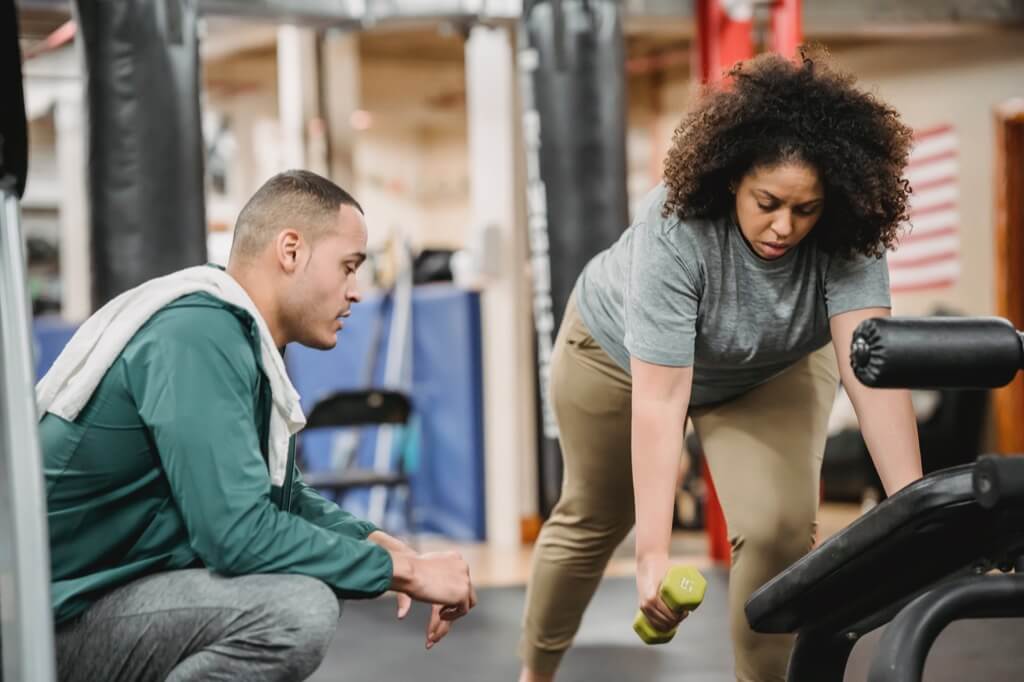Feeling uneasy or lacking self-confidence in certain situations is a common human experience. The good news is that self-confidence is not a fixed trait; it’s something that can be developed and nurtured over time. In this comprehensive guide, we are here to give you insight into 21 expert-backed strategies to increase your self-confidence. These techniques are rooted in self-acceptance, personal growth, and psychological principles, designed to empower you to embrace your uniqueness and cultivate a more positive self-image.
1. Celebrate Your Individuality
Feeling unique is a fundamental part of being human. Embracing and celebrating your individuality is the first step toward building self-confidence. Consider what sets you apart from others, whether it’s your personality traits, skills, or life experiences. Recognize that if everyone were the same, life would lack diversity and excitement. Make a list of the qualities that contribute to your unique identity, and focus on the positives.
For example, if you’ve always been outspoken, think about the advantages of having a strong voice. Perhaps it helps you express yourself effectively, advocate for your needs, or inspire others. Understand that not everyone may relate to or appreciate these aspects of your personality, and that’s okay. Your uniqueness is your strength.
2. Find Joy in Self-Affirmation
Self-affirmation is a powerful tool for boosting self-confidence. It involves recognizing and appreciating your worth, regardless of external validation. While compliments from others are nice, true self-assurance comes from within. Start by making a habit of affirming yourself regularly.
For instance, look in the mirror and say, “I am a valuable and unique individual with many strengths.” Celebrate your achievements, no matter how small they may seem. Over time, this practice can help shift your mindset and increase your self-esteem. The key is to be patient, as building self-confidence is a gradual process.
3. Define Yourself
One significant source of low self-confidence is allowing others to define who you are. When you overly rely on external opinions and compare yourself to other’s expectations, you risk doubting your worth. Instead, focus on defining yourself according to your values, desires, and aspirations.
Consider the example of family expectations. If your family believes that success means having a family of your own, but you don’t share that desire, it’s essential to assert your definition of success. Remember that no one else has the complete picture of your potential and what will make you truly happy. It’s a crucial step in building self-confidence to prioritize your values over others’ expectations.
4. Stay Optimistic
A positive outlook can significantly impact your self-confidence. Dwelling on pessimistic thoughts and anticipating the worst can erode self-belief and lead to insecurity. Instead, practice optimism by shifting your perspective and focusing on positive outcomes.
For example, suppose you’re hesitant about attending a social event where you might not know many people. Instead of dwelling on potential discomfort, think of it as an opportunity to meet new friends and expand your social circle. By reframing your thoughts, you can boost your mood and reduce anxiety.
5. Embrace Your Authentic Self
Authenticity plays a vital role in self-confidence. Feeling uneasy about who you are often indicates that you’re holding onto false or counterproductive self-beliefs. Embrace your authentic self, flaws, and all, and understand that you are deserving of love and respect regardless of any imperfections.
For instance, if you struggle with starting conversations with strangers, acknowledge it without judgment. Say to yourself, “I am not always comfortable talking to new people, and that’s okay!” Then, challenge yourself to meet at least one new person each day. By accepting and embracing your authentic self, you can work on building self-confidence.
6. Be Loving to Yourself
Self-love is essential for building self-confidence. Treat yourself with the same kindness and care that you would offer to your closest friend. This means setting boundaries, prioritizing your needs, and ensuring your well-being.
For example, if you realize that going out twice a week leaves you feeling drained, reduce it to once a week to create more “me time” for yourself. Additionally, consider joining interest groups or communities that align with your passions and provide a sense of belonging and encouragement.
7. Move Your Body

Physical activity is closely linked to self-confidence. Engaging in enjoyable physical activities not only promotes physical well-being but also boosts self-esteem. Activities like dancing, in particular, focus on the mechanics of the body rather than its aesthetics, making them great self-confidence boosters.
Consider putting on your favorite music and dancing around for a few minutes each day. The act of moving your body and enjoying the sensations it brings can uplift your spirits and help you reconnect with your emotions.
8. Foster Creativity
Creativity can enhance self-confidence by encouraging self-expression and personal growth. Engaging in creative activities like painting, writing, or composing music can help you explore your talents and discover new interests.
Remember that creativity doesn’t require perfection. You don’t have to be an expert to enjoy painting, writing, or trying new creative endeavors. Dedicate some time each day to creative pursuits, and you’ll find that keeping your mind active and your spirit uplifted contributes to higher self-confidence.
9. Laugh More
Laughter is often called “the best medicine” for a good reason. When you laugh, your body and mind undergo positive changes that can improve your mood and boost your self-confidence. Laughter releases endorphins, reduces stress, enhances concentration, and brings a sense of lightness and connection with others.
Consider incorporating laughter into your daily routine. Watch comedies, engage in laughter meditation, or simply spend time with people who make you laugh. Laughter not only improves your mood but also helps you view challenges more positively.
10. Cultivate Gratitude
Gratitude is a powerful tool for building self-confidence. Keeping a gratitude journal, where you regularly write down things you’re thankful for, can help shift your perspective and foster a more positive outlook on life.
Make it a daily practice to reflect on the positive aspects of your life. Using colorful markers or doodling in the margins can make your gratitude journal more engaging and enjoyable. Reading through your gratitude journal during challenging times can serve as a reminder of the many wonderful things in your life.
11. Live in the Moment
Practicing mindfulness and living in the present moment can significantly improve your self-confidence. When you give each moment your full attention, you become more aware of the things that bring you joy and contentment.
For example, if you have a coworker who makes you happy, consider finding ways to deepen your connection, such as inviting them to join you for social activities outside of work. Meditation is another excellent way to enhance self-awareness and stay present in the moment.
12. Dress for Confidence
Your appearance can influence your self-confidence. Putting effort into your attire, even when you’re not feeling particularly confident, can have a positive impact on your self-esteem. Wearing fashionable, well-fitting clothing that makes you feel comfortable and expresses your personality can boost your self-assurance.
Additionally, practicing confident body language, such as standing tall and walking with purpose, can reinforce your self-confidence. The saying “fake it until you make it” holds here; by acting confidently, you can gradually increase your self-confidence.
13. Set Goals and Stick to Them
Setting and achieving goals that align with your values is a powerful way to build self-confidence. When your actions reflect your principles and aspirations, you create a sense of purpose and fulfillment.
For example, if you value your health, you might set goals to improve your diet and exercise habits. These actions not only contribute to physical well-being but also reinforce the belief that you are capable of taking charge of your life and achieving your objectives.
14. Exercise Regularly

Regular physical activity is a well-known self-confidence booster. Engaging in activities you enjoy makes exercise less of a chore and more of an enjoyable experience. Consider finding a workout buddy to make exercise even more enjoyable.
It’s important to note that physical activity need not be strenuous. A simple walk after dinner or in the morning can do wonders for your mental and physical health, helping you feel more self-confident. Opt for active choices in your daily routine, such as parking farther away and taking the stairs, to incorporate physical activity into your life.
15. Pursue Your Passions
Engaging in activities that bring you joy and fulfillment is a surefire way to boost self-confidence. When you’re engrossed in something you’re passionate about, self-consciousness often fades away.
If you’re unsure about your passions, start by asking others about their hobbies and interests. Hearing people discuss their passions can ignite your curiosity. Consider keeping a journal of activities and experiences that excite you; over time, this can help you discover your passions and interests.
16. Surround Yourself with Positive People
The company you keep can have a significant impact on your self-confidence. Surrounding yourself with positive, encouraging individuals who uplift and support you can make a world of difference.
Seek to deepen your relationships with people who are kind, supportive, and affirming of your worth. On the flip side, if you find yourself in an environment with negative influences, try to minimize your contact with those individuals. Remember that you have the power to choose the company you keep, and prioritizing your well-being is essential for building self-confidence.
17. Appreciate Your Body
Our bodies deserve appreciation for the incredible things they do. Instead of fixating on perceived flaws or imperfections, shift your focus to the remarkable feats your body has achieved and continues to accomplish.
For athletes, this might mean appreciating how your body has supported you during competitions and helped you recover from injuries. If you’ve given birth, acknowledge the profound experience of bringing new life into the world. Sometimes, simply taking care of your body through adequate sleep and personal hygiene can make a significant difference in how you feel about yourself.
18. Address Personal Issues
Personal issues, whether they result from past trauma or other sources, can hinder self-confidence. It’s essential to be gentle and compassionate with yourself as you work to overcome these obstacles.
Consider seeking professional help if you’re dealing with deeply rooted issues. Imagine how you would advise a trusted friend facing a similar situation, and apply that guidance to your own life. While it can be challenging, removing toxic influences or unhealthy relationships from your life may be necessary for your personal growth and self-confidence.
19. Pursue a Fulfilling Career

A career that aligns with your values and passions can significantly impact your self-confidence. If you’re unhappy in your current job, consider exploring other career paths that better resonate with your interests and aspirations.
Don’t let the opinions of others dictate your career choices. Do what makes you genuinely happy, even if it means pursuing an unconventional path. Your happiness and fulfillment are essential for building self-confidence.
20. Exude Confidence
Exuding confidence can be a self-fulfilling prophecy. By practicing confident behavior, you can gradually internalize that confidence. Remind yourself that you are valuable and deserving of your place in any situation, regardless of circumstances.
For instance, when faced with a situation where you’re uncomfortable or unwilling to do something, confidently assert yourself and say “no.” Standing up for yourself and your boundaries reinforces self-confidence and self-worth.
21. Seek Support
If you’ve tried various strategies and still struggle with low self-confidence, seeking support from others who understand can be immensely beneficial. Joining a support group or connecting with individuals who share similar experiences can help you feel less isolated and more at peace with yourself.
If in-person interaction is challenging, consider searching for online support groups or communities. Realizing that you’re not alone in your thoughts and feelings can be a profound source of comfort and empowerment.
These strategies are your keys to unlocking your inner confidence. Think of them as your personal toolbox, ready to empower you whenever self-doubt creeps in. With these tools at your disposal, you’re on the path to becoming your most self-assured and empowered self.




